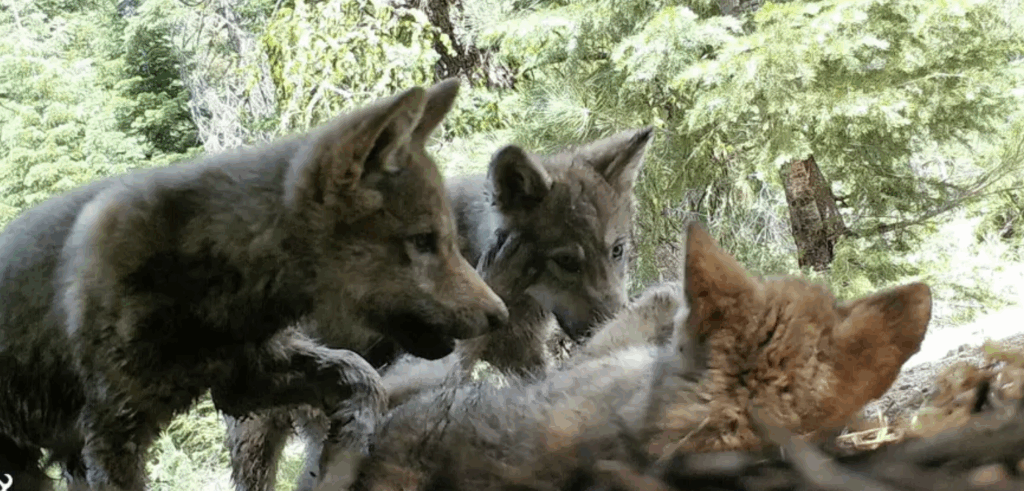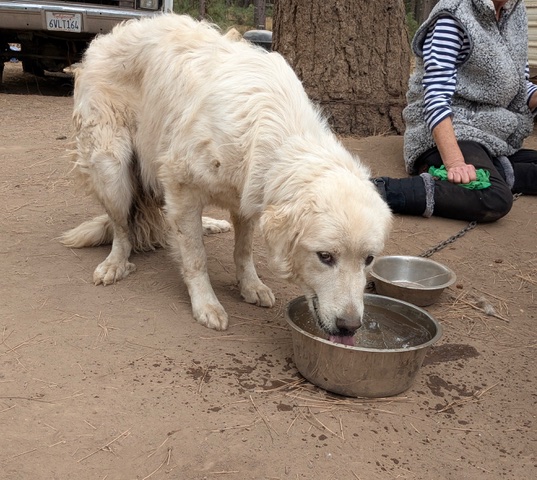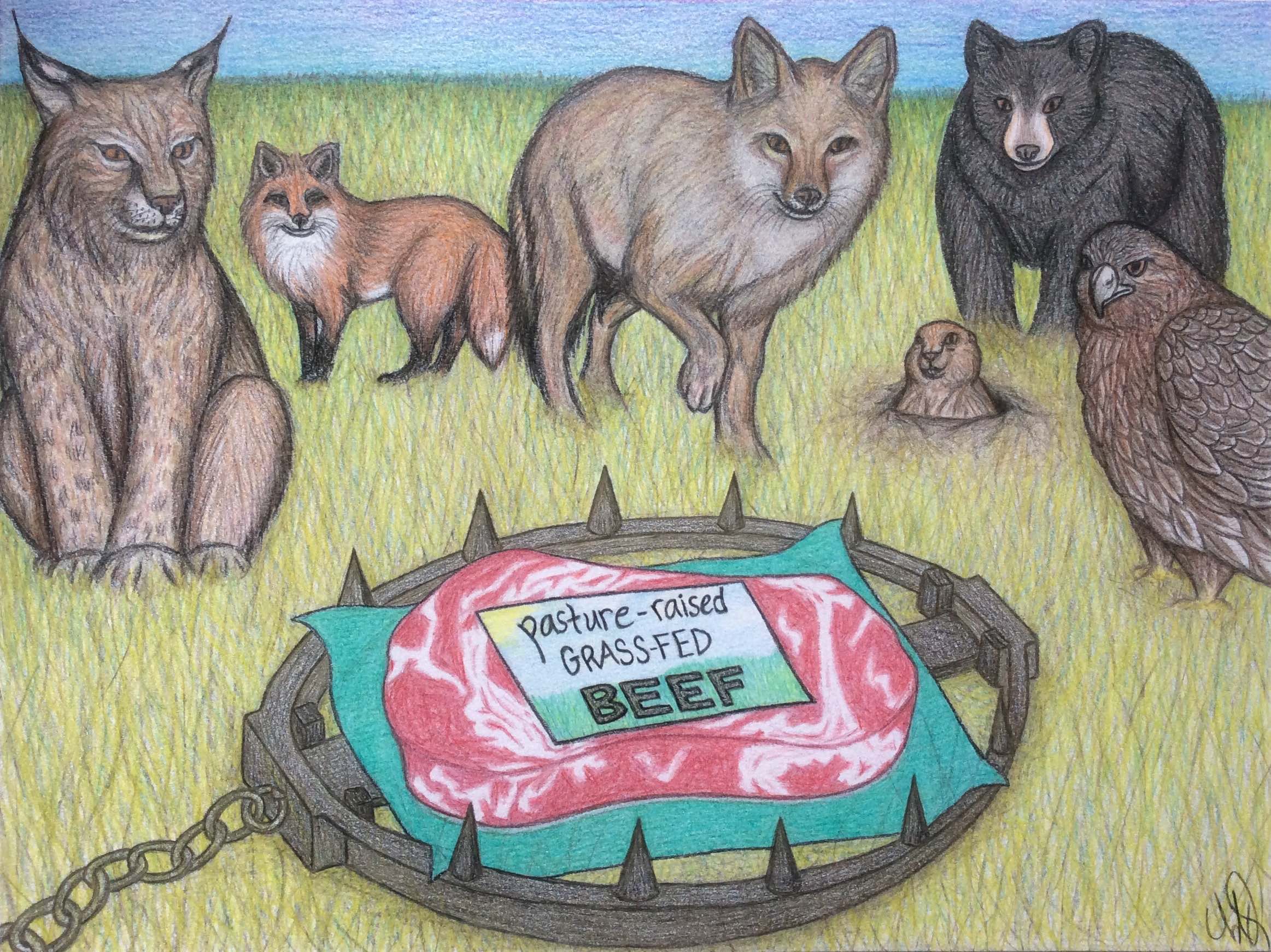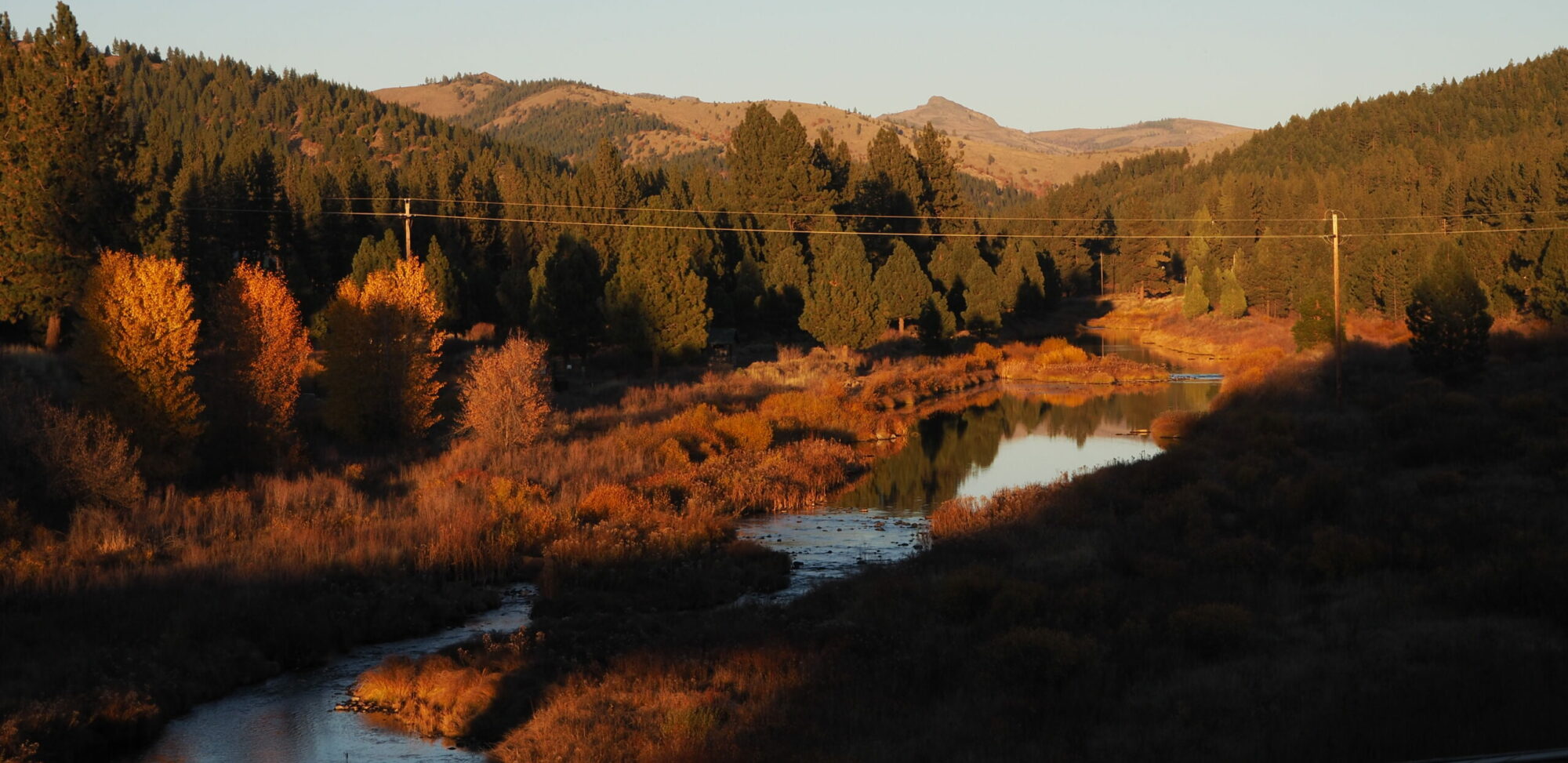
The Lost Sierra is tragically a little less wild this autumn. The California Department of Fish and Wildlife announced on Oct. 24th that they shot and killed 4 members of the Beyem Seyo wolf pack in Sierra Valley, simply for following their instincts and preying on “free hamburgers” (AKA cows and calves) left out in the valley unattended.
Ranchers and CDFW officials spent “18,000 hours” harassing the wolves with drones, forcing tracking collars on them, shooting them with non-lethal munitions, but apparently failed to try what is widely known as the most effective wolf deterrent, the ongoing presence of Pyrenees dogs and llamas to guard the herd, combined with the old cowboy technique of “riding the range.” If ranchers claim that the herds are too big to defend, then these industrial sized herds are clearly too big-period. If wolves cannot survive even in one of California’s most wild areas, what chance do they have in the state? The County is currently holding 9 Pyrenees pups at animal control. These pups could become cattle protection dogs if trained right, helping wildlife and ranchers to finally coexist.
Death without reason is murder. These (endangered) wolves who included one of only a handful of breeding pairs in the whole state, were murdered unnecessarily by state officials, who initially failed to prevent habituation of the wolves to easy meals, when they knew wolves were in the area. The killings are even more unnecessary, as the cows in Sierra Valley are about to be transported to the central valley for overwintering, and they would not be a food source for much longer this season anyway.
Instead of working with the entire community to come up with a solution, the CDFW have basically become a “strike team” obediently serving Big Ag and destroying even the most sensitive and endangered species in our state. Shame on them.
According to one source, the wolves were shot from a helicopter with tranquilizer darts and then given lethal injections– simply for behaving like wolves. Another three wolves are being removed from their natural habitat and interned in a fenced preserve, according to the same source. The CDFW apparently is well on its way to removing the entire Beyem Seyo wolf pack from the landscape. These kind of unnecessary and damaging attacks on the wild are what our tax dollars are paying for. Now, Plumas and Sierra Counties are known– not as wild areas where wildlife is making a comeback– but as places where endangered species are gunned down from helicopters, and the forest is destroyed because people believe false propaganda by the timber industry that logging will save communities from wildfire.

If you live in wildfire country, you have an obligation to yourself, your family, your neighbors, and firefighters to harden your home against fire and maintain defensible space. If you are a rancher who operates in wild areas, you have an obligation to defend your herd against predators of all types, even if it means more work, and to accept that running such operations in wild areas means some risk of loss.
Wolf kills must be horrible and traumatic for the calf, the mother and the whole herd, not to mention the ranchers. We are not cheering the wolf kills by any means. We don’t mean to minimize that, but it is nature, predators are a part of it…we can’t just erase them from the landscape. It is one more reason to adopt best practices for coexistence. Wolves should be eating deer in the woods, not calves, but thinning forests has reduced deer habitat and their numbers are dwindling. The only way to prevent predators killing cattle is having other animals guarding them.
This culture has a tendency– when confronted by natural risks– to lash out against the wild rather than take responsibility for our own role in the problem. Killing wolves and cutting down forests won’t prevent predators or wildfires, it will only make threats more potent. These dysfunctional actions have their roots in manifest destiny and the associated widespread slaughter of Native American men, women, children, and elders only a few generations ago.
This sick, command and control response to nature affects all species. Because industrial logging in mature and old growth forests has led to an extinction threat for the spotted owl, the timber industry’s lapdog the US Fish and Wildlife Service plans to shoot a half million barred owls, the largest wildlife mass killing plan ever carried out by the US Government.
The solution is not to continue killing an endangered species struggling to make a recovery, the solution is to remove the unnatural feature on the landscape (easy hamburger meals undefended by dogs, humans or llamas).
BIG AG out of Sierra Valley NOW!
Large scale ranching of cows in the Sierra Valley:
– endangers the recovery of keystone predator populations
– is a large and growing source of methane and other carbon emissions
– damages meadows– when done on former wetland areas, ranchers use heavy equipment to dig channels and disrupt the flow of water through the land, drying out meadows and losing crucial habitat as well as large quantities of carbon storage.
– pollutes waterways, specifically the headwaters of the Feather River serving the water needs of 26 million Californians

The CDFW website states:
“The impacted wolves included a breeding pair (WHA08M and LAS23F), female (BEY01F) and male (BEY12M). During the course of the operation, a juvenile wolf (BEY12M) was mistaken for the breeding male (WHA08M), which was of similar color and size, and was unintentionally lethally removed. Remains of two additional juveniles in this pack (BEY15M and BEY17M) were found and they were determined to have died prior to the start of the operation. The cause of their deaths is unknown…..”
So, it sounds like the CDFW killed a juvenile wolf “unintentionally” and it also sounds like they are failing to adequately investigate the deaths of the other two juvenile wolves even though this might have been associated with an illegal killing by local ranchers. So much for the rule of law.
This brings up a lot of questions: Why didn’t CDFW, rather than kill them, relocate the wolves in a different area or a refuge? When they shot the wrong wolf from the helicopter with the tranquilizer, why didn’t they release him rather than than go on to euthanize him? This botched raid smacks of murderous intent and simmering hatred for predators as backdrop to skirting the state’s wolf protection status.

Even without the presence of wolves, the cattle industry is responsible for significant numbers of wild animals being killed at local taxpayer expense. Between 2011 and 2020, more than 4000 animals were killed by federal forces in Plumas and Sierra Counties. Properly protecting herds is the solution to this killing spree, but ranchers don’t want to spend the extra time or money it takes to do it right.
Human supremacy is just as insidious and evil as white supremacy, and does immeasurable harm to the natural world. Both must be fought and defeated.
Lodge a complaint to your state senator and assemblymember and directly to CDFW- DEMAND they leave the remnants of the Beyem SEO pack ALONE and provide direct guidance on a guard dog/ llama program for local ranchers rather than resorting to murder: Jennifer.benedet@wildlife.ca.gov



